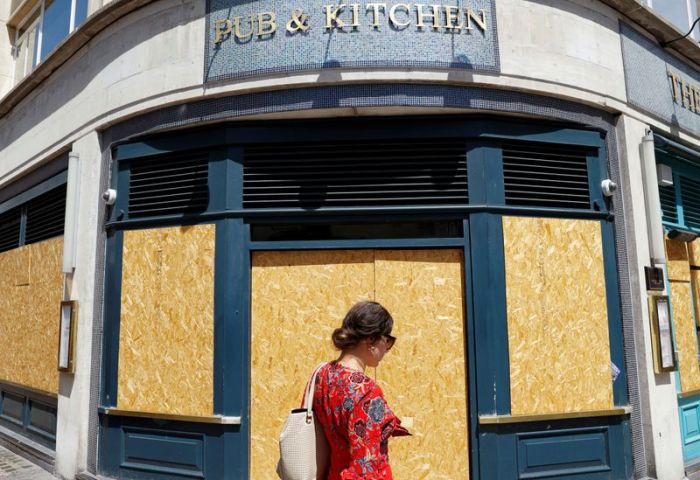BERLIN (Reuters) – The German economy will shrink by 6.5% this year due to the coronavirus pandemic, the government’s council of economic advisors said on Tuesday, adding that the slump will be prolonged if the number of new infections jumps.
The bleak outlook came after the premier of Germany’s most populous state, North Rhine-Westphalia, put the Guetersloh region back into lockdown until June 30 following a coronavirus outbreak at a meatpacking plant there.
“The coronavirus pandemic is expected to cause the largest slump of the German economy since the founding of the Federal Republic. But we expect the recovery to start in the summer,” council head Lars Feld said.
Adjusted for calendar effects, the German economy is seen shrinking by 6.9% this year. The council said it expects a slow recovery in the second half of the year, with gross domestic product (GDP) forecast to grow by 4.9% next year.
“This means GDP probably won’t get back to its pre-pandemic level until 2022 at the earliest,” the council said in a statement, adding that the government’s stimulus measures were likely to support the recovery.
The government should continue its expansive fiscal policies next year and avoid a debate about a consolidation of public finances before 2022, Feld said.
Chancellor Angela Merkel’s cabinet passed an extra budget last week to finance its bumper stimulus package, pushing up overall new borrowing to a record 218.5 billion euros ($245.35 billion) this year.
Feld said he was confident another lockdown and a second economic slump could be avoided as authorities and citizens had learned to adapt to the new infection risk by behaving more cautiously.
Earlier on Tuesday a survey among purchasing managers showed Germany’s private sector recession eased further in June, but coronavirus-related disruptions and uncertainty continued to weigh on demand.
(Reporting by Michael Nienaber; Editing by Michelle Martin)

























